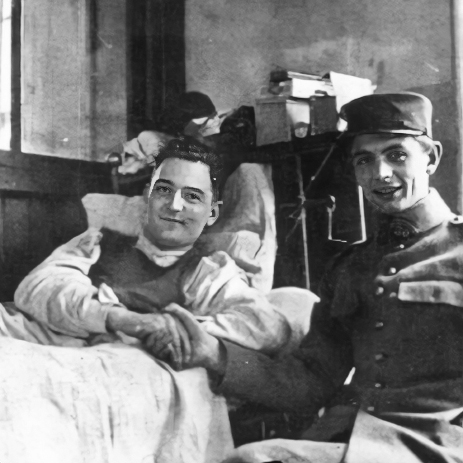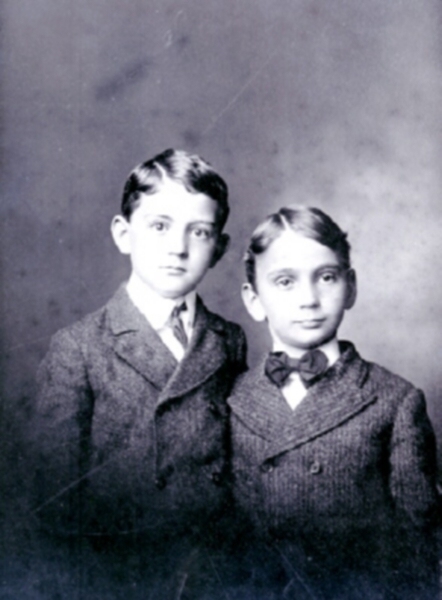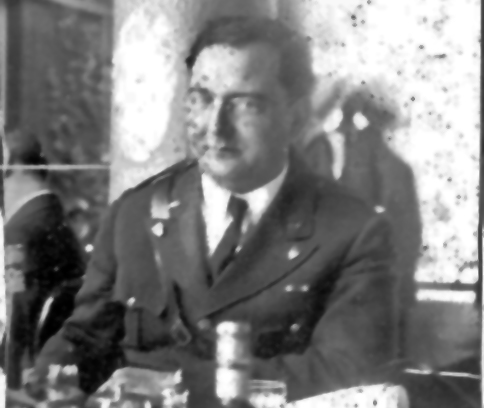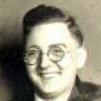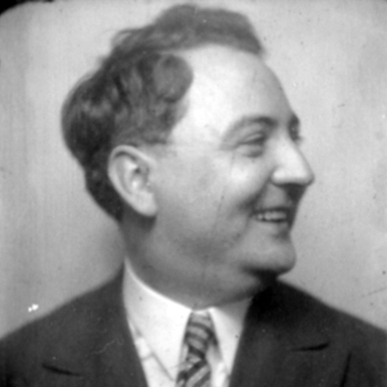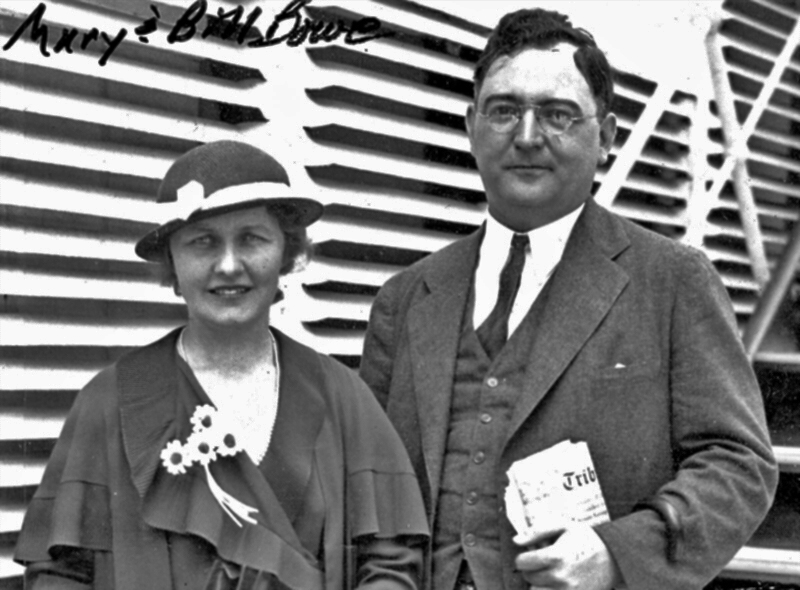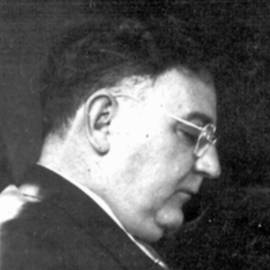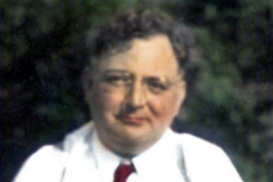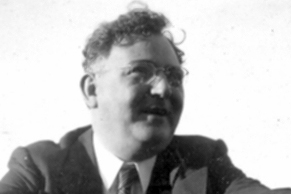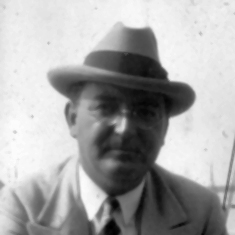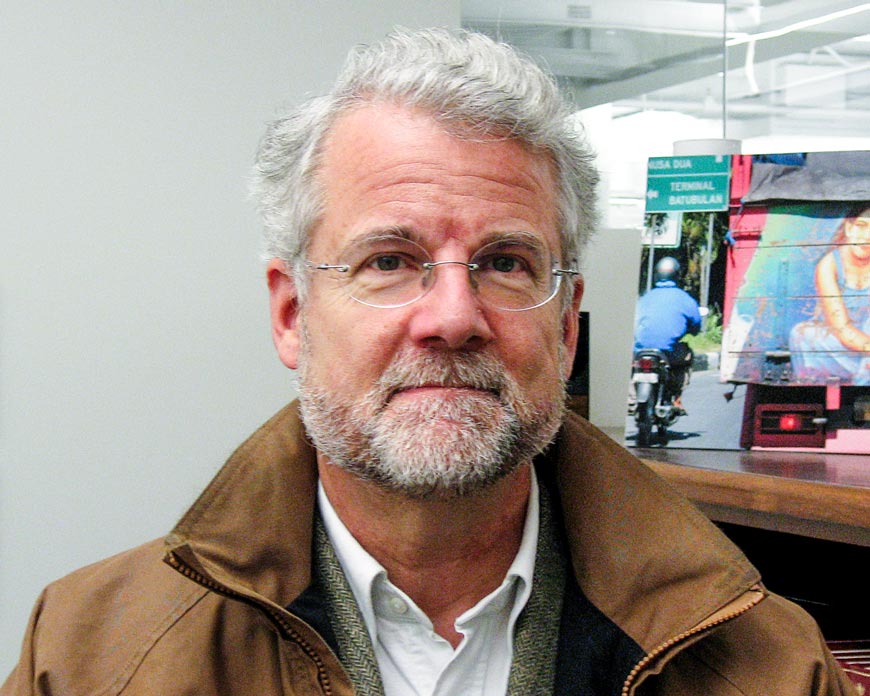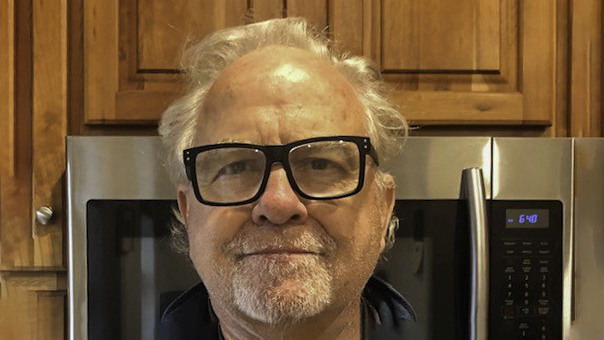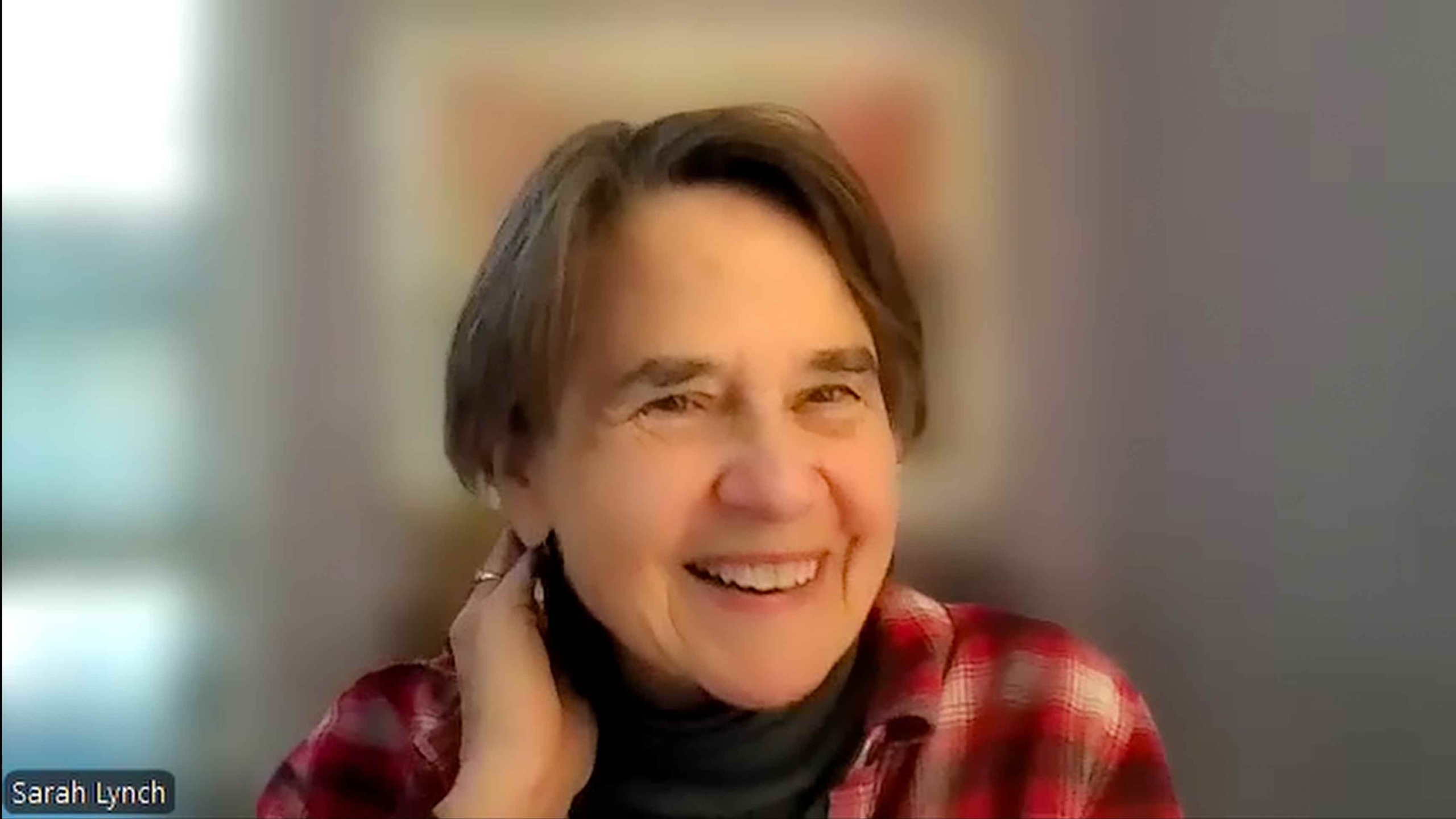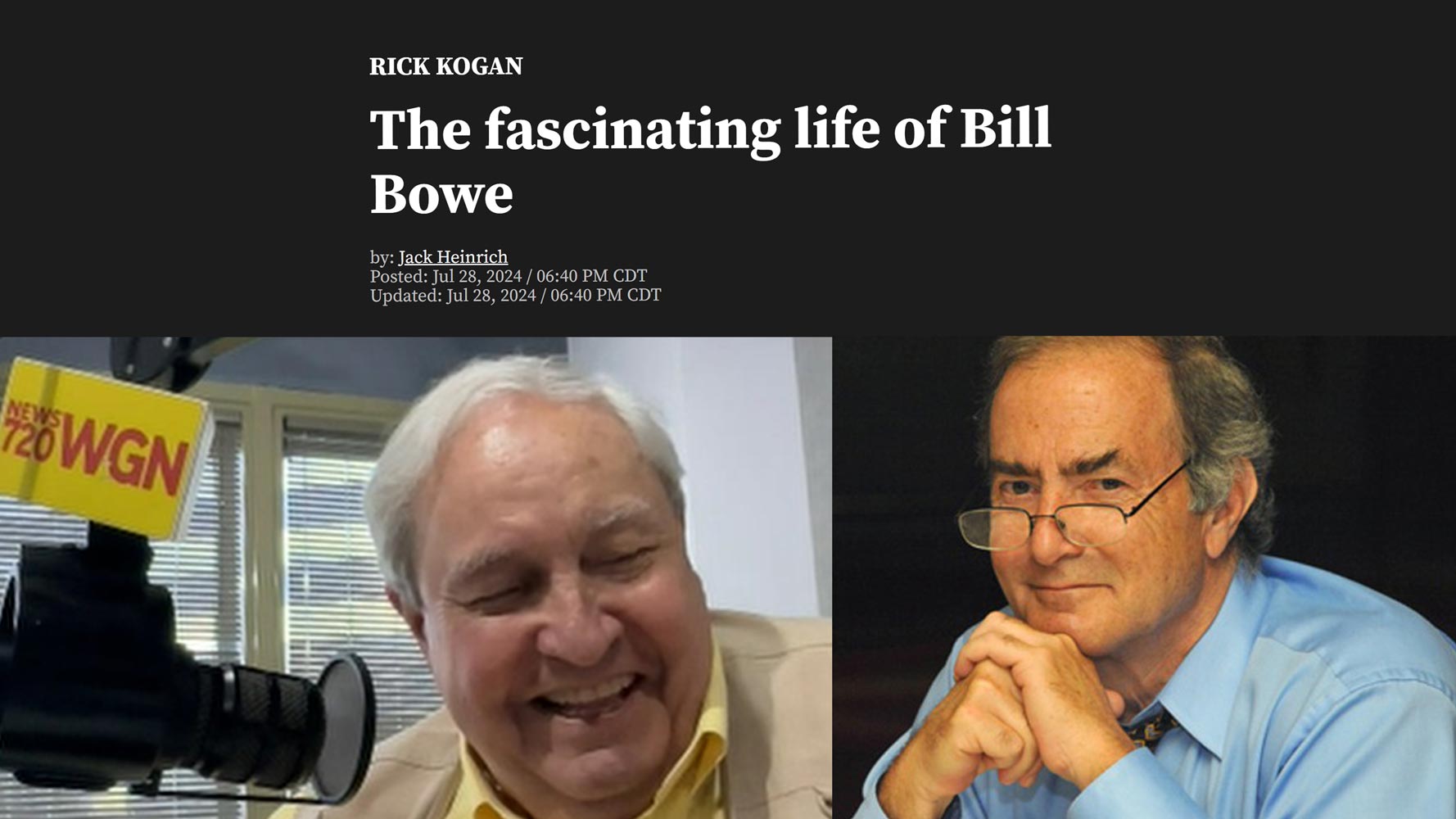William John Bowe, Sr.
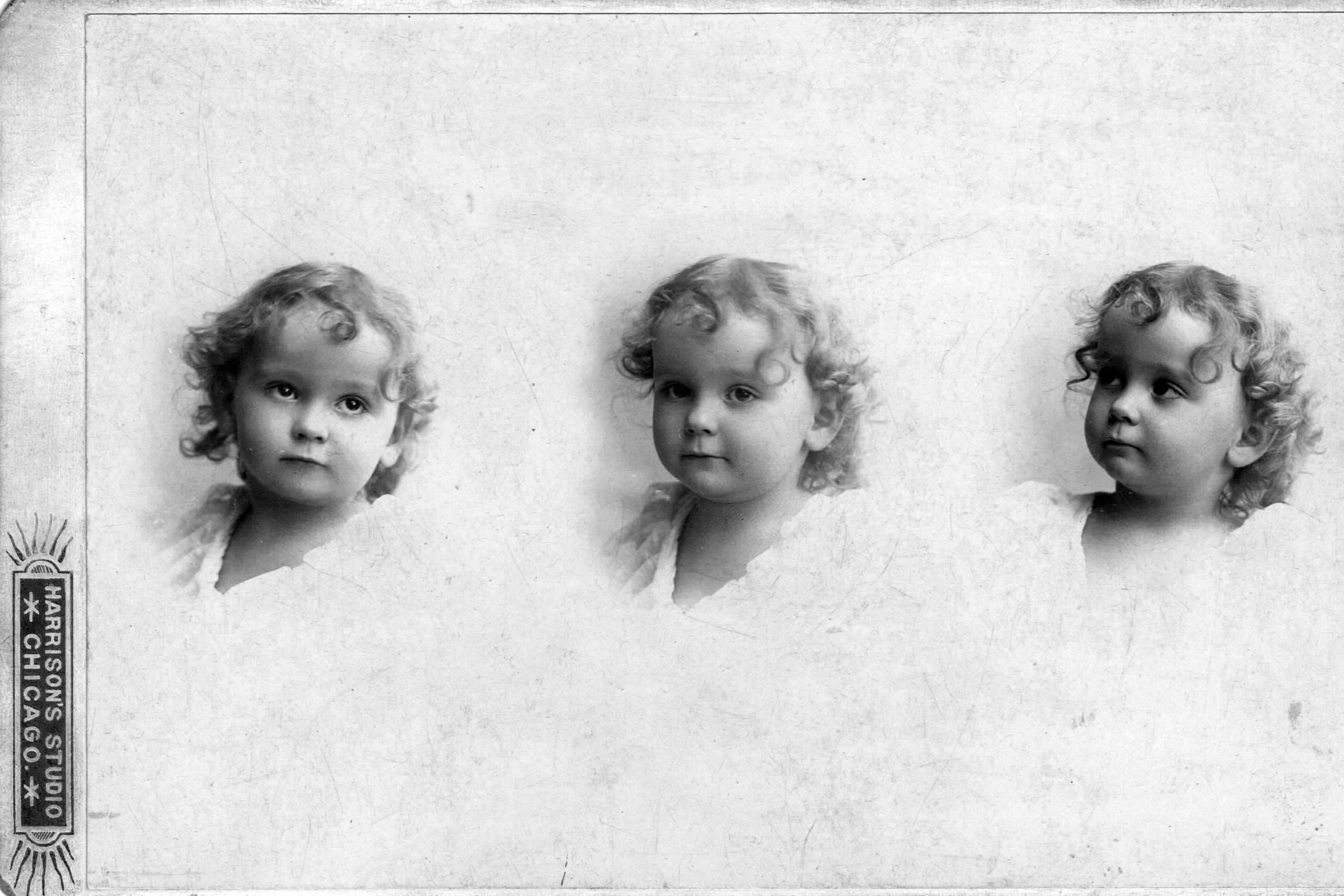
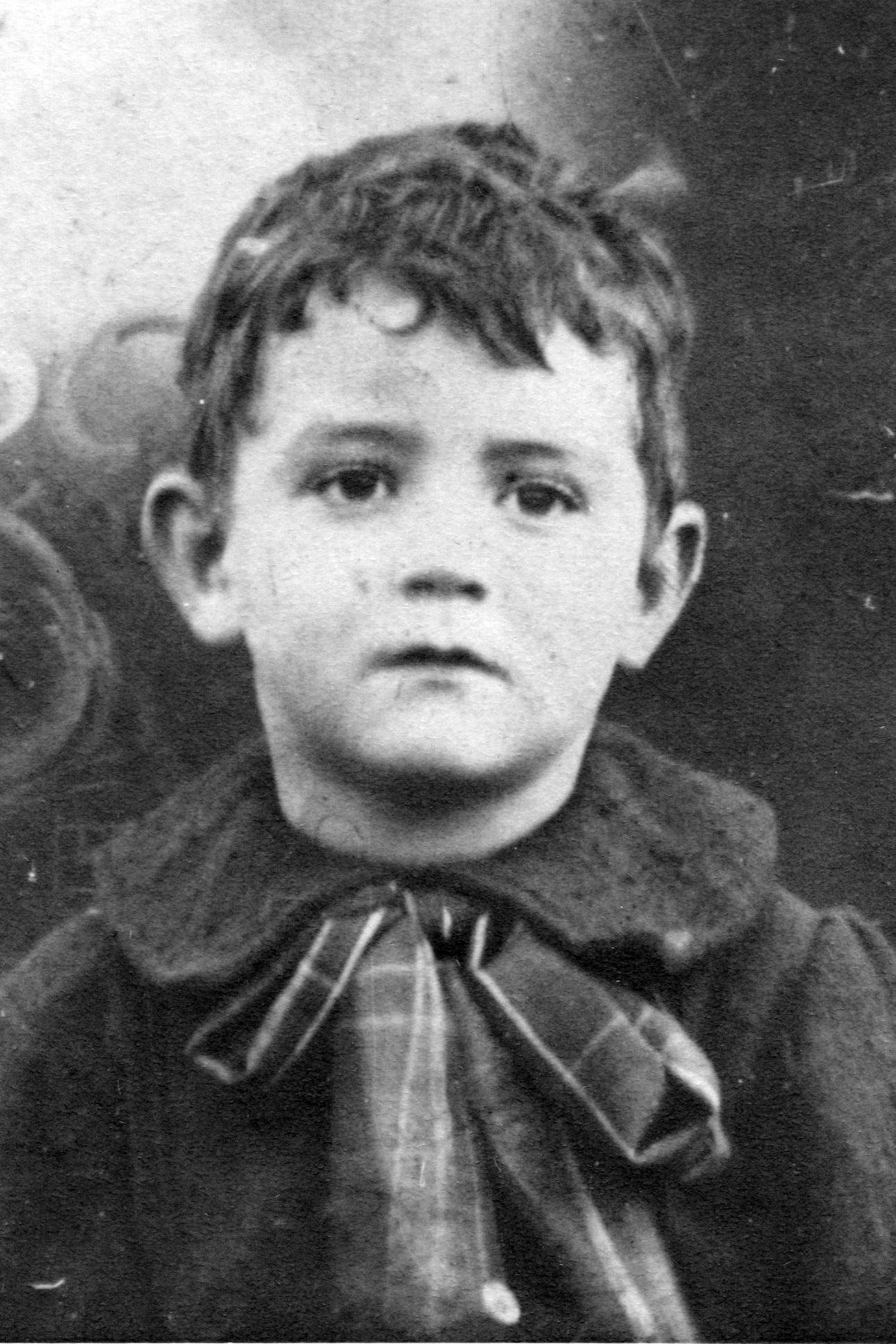
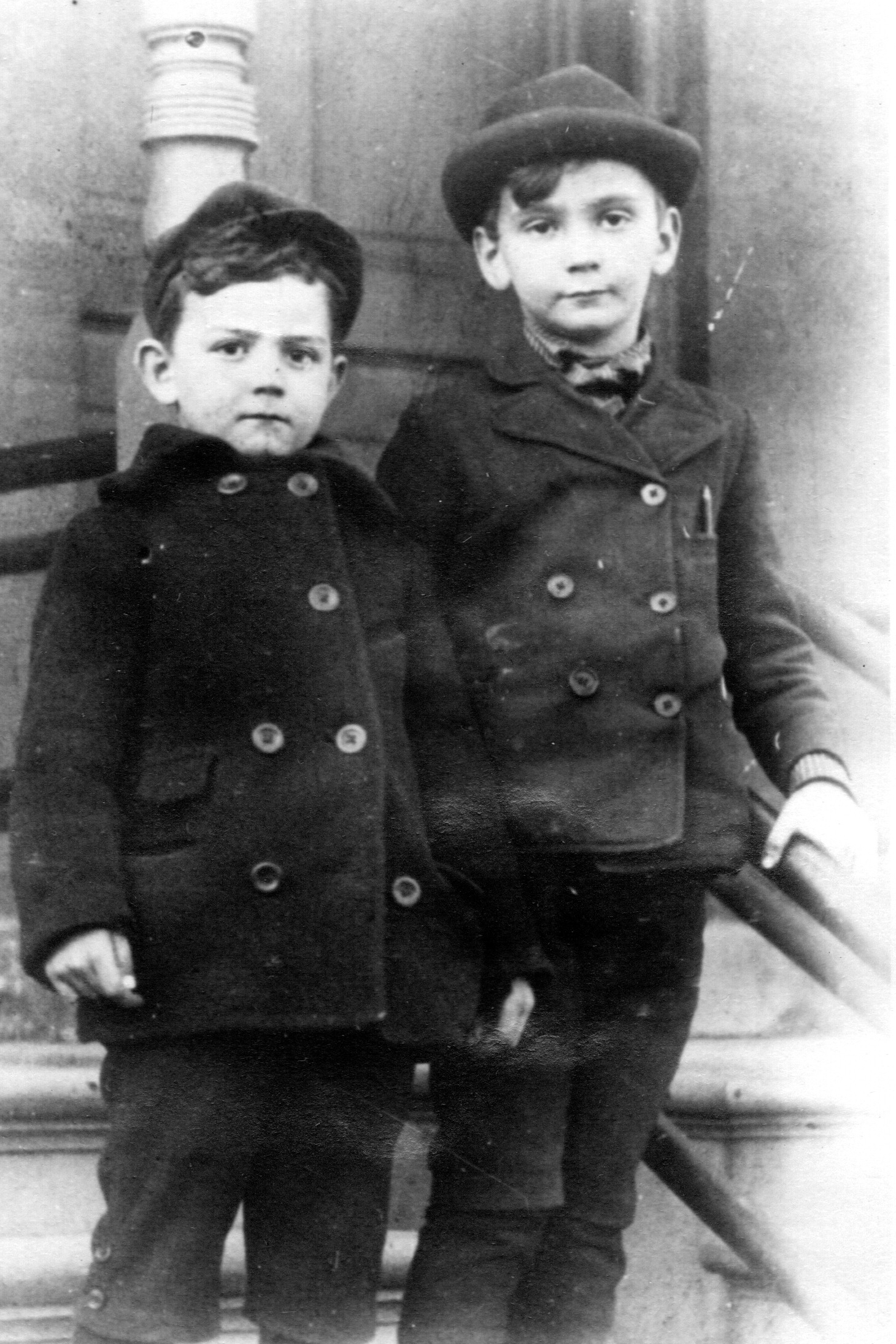
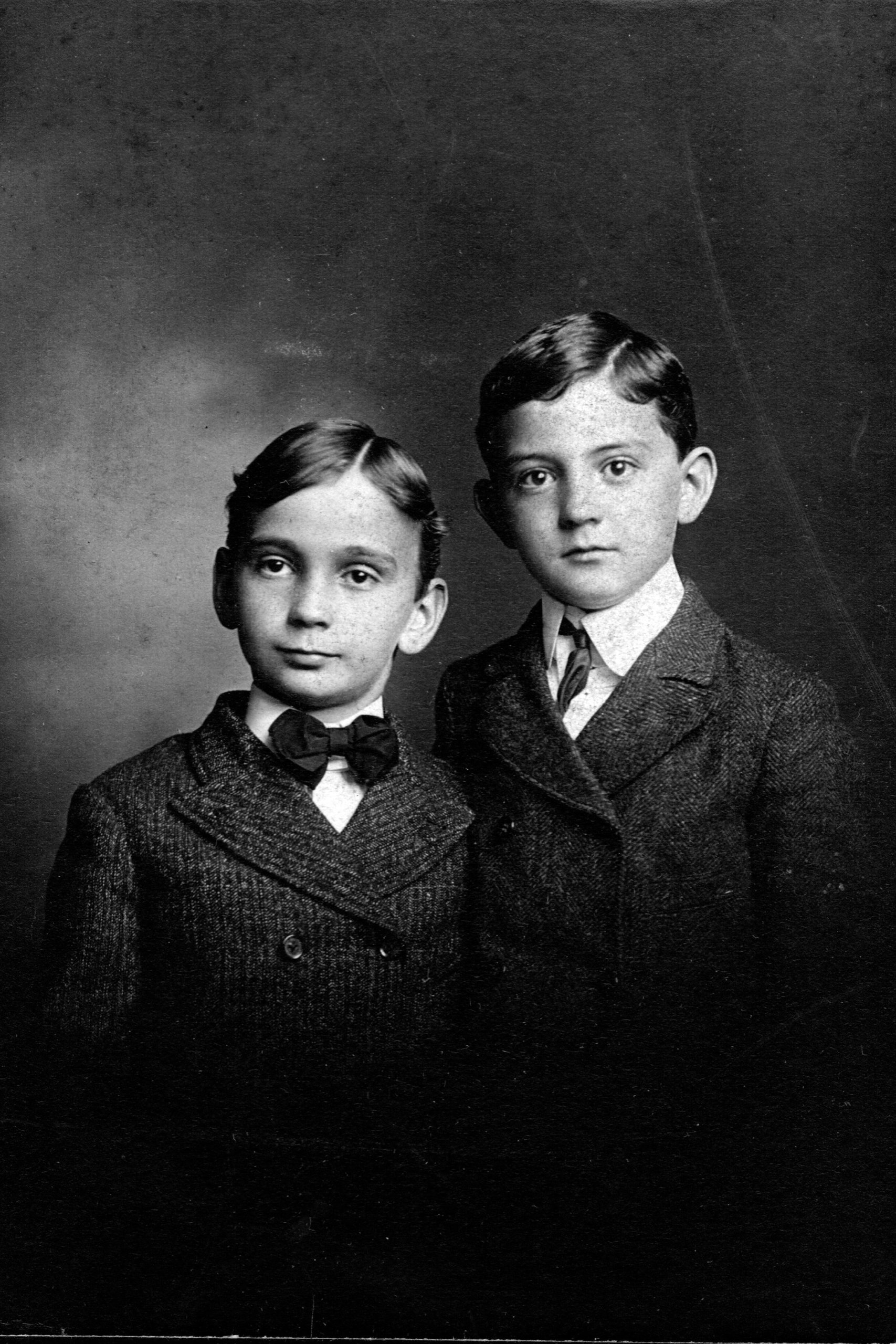
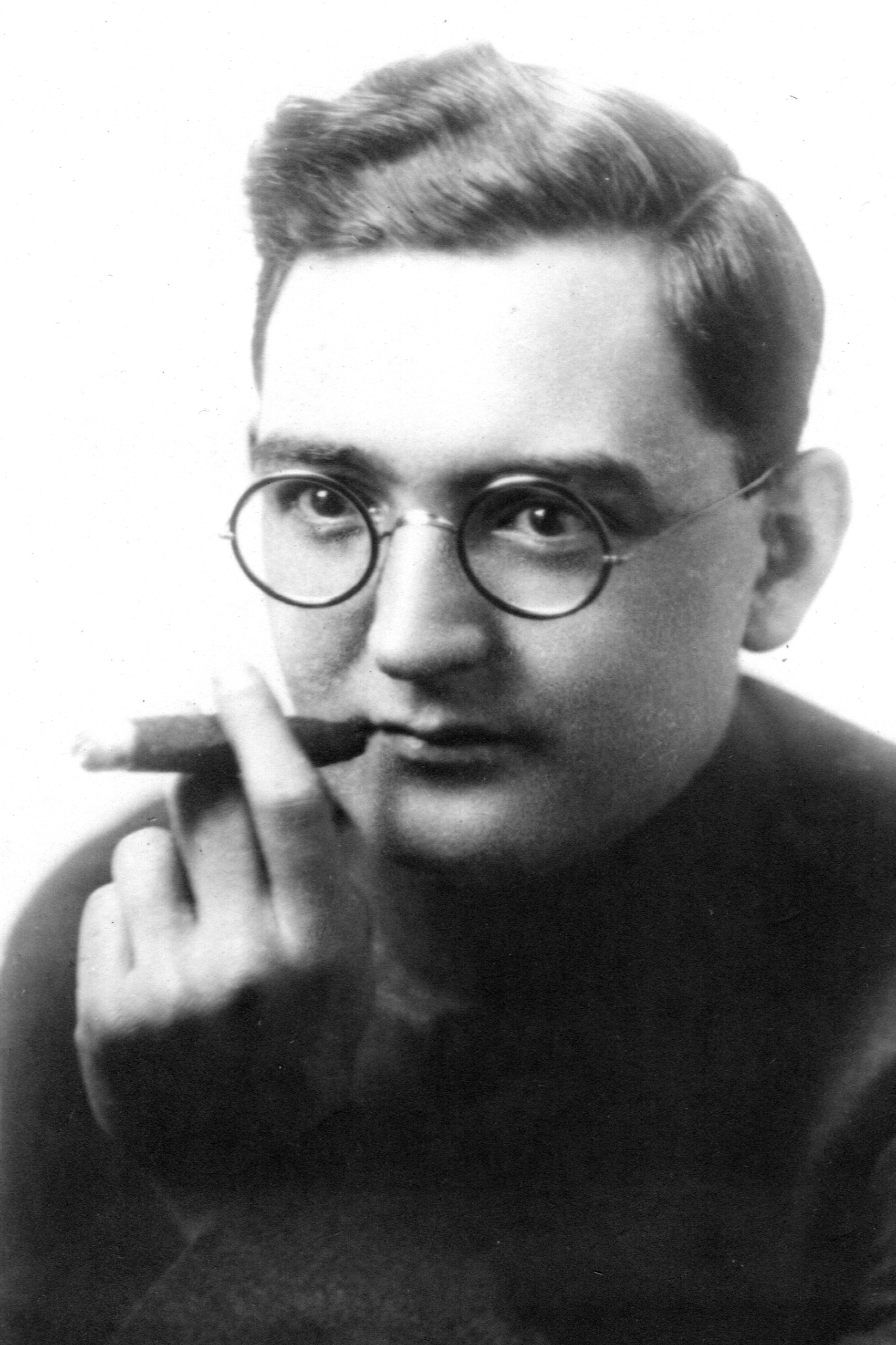


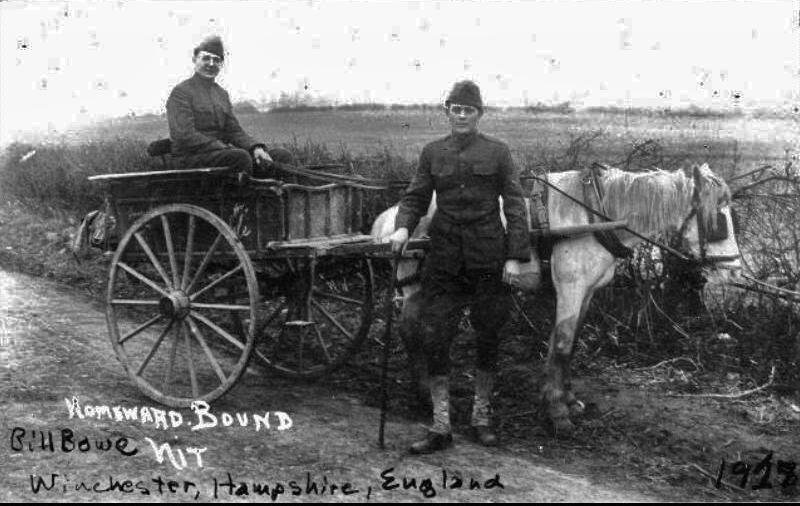
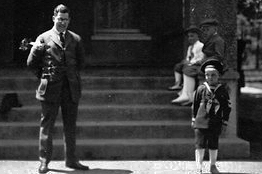
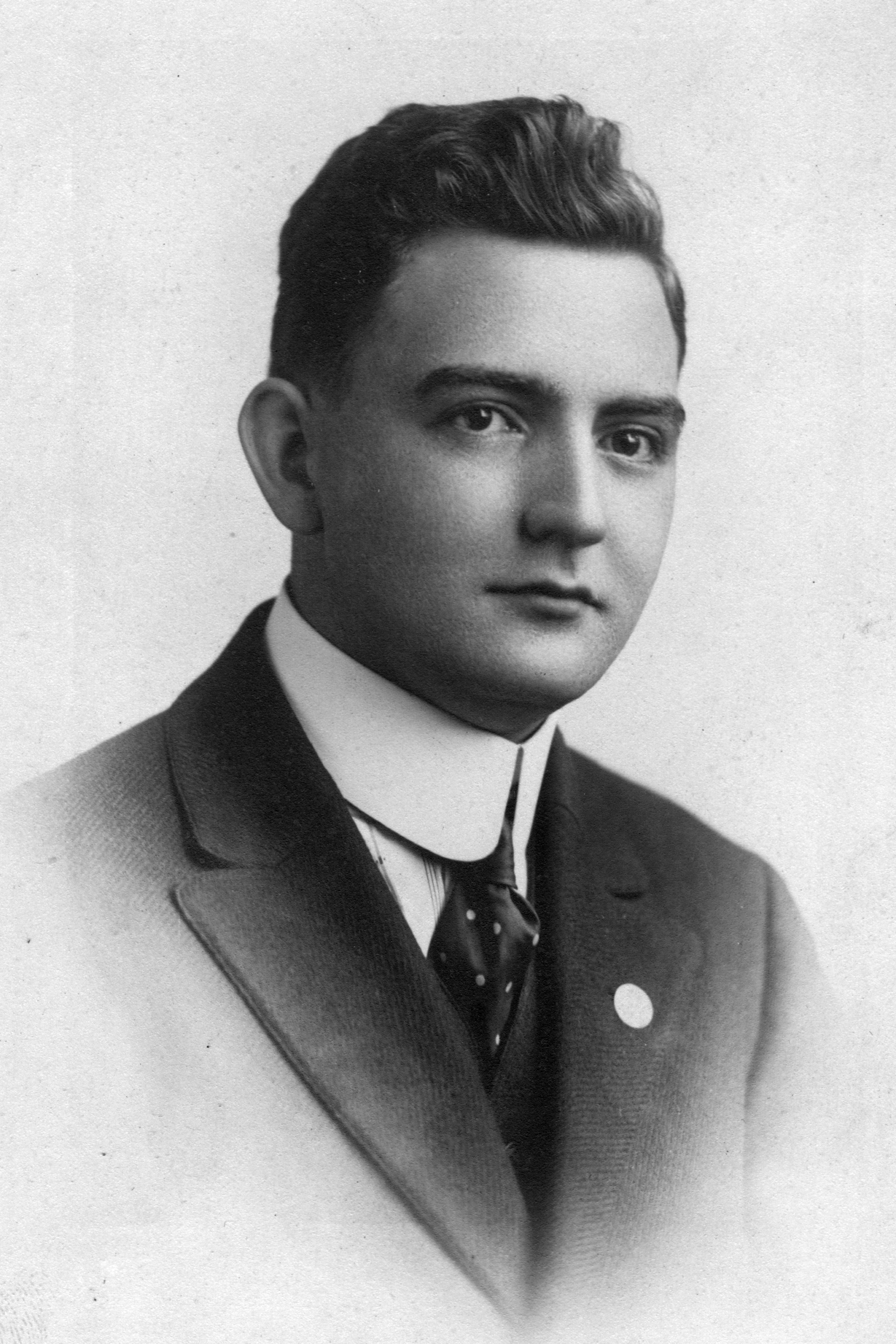
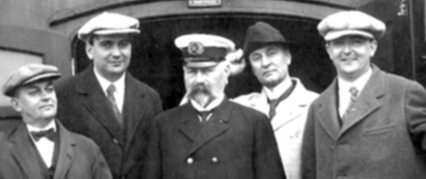
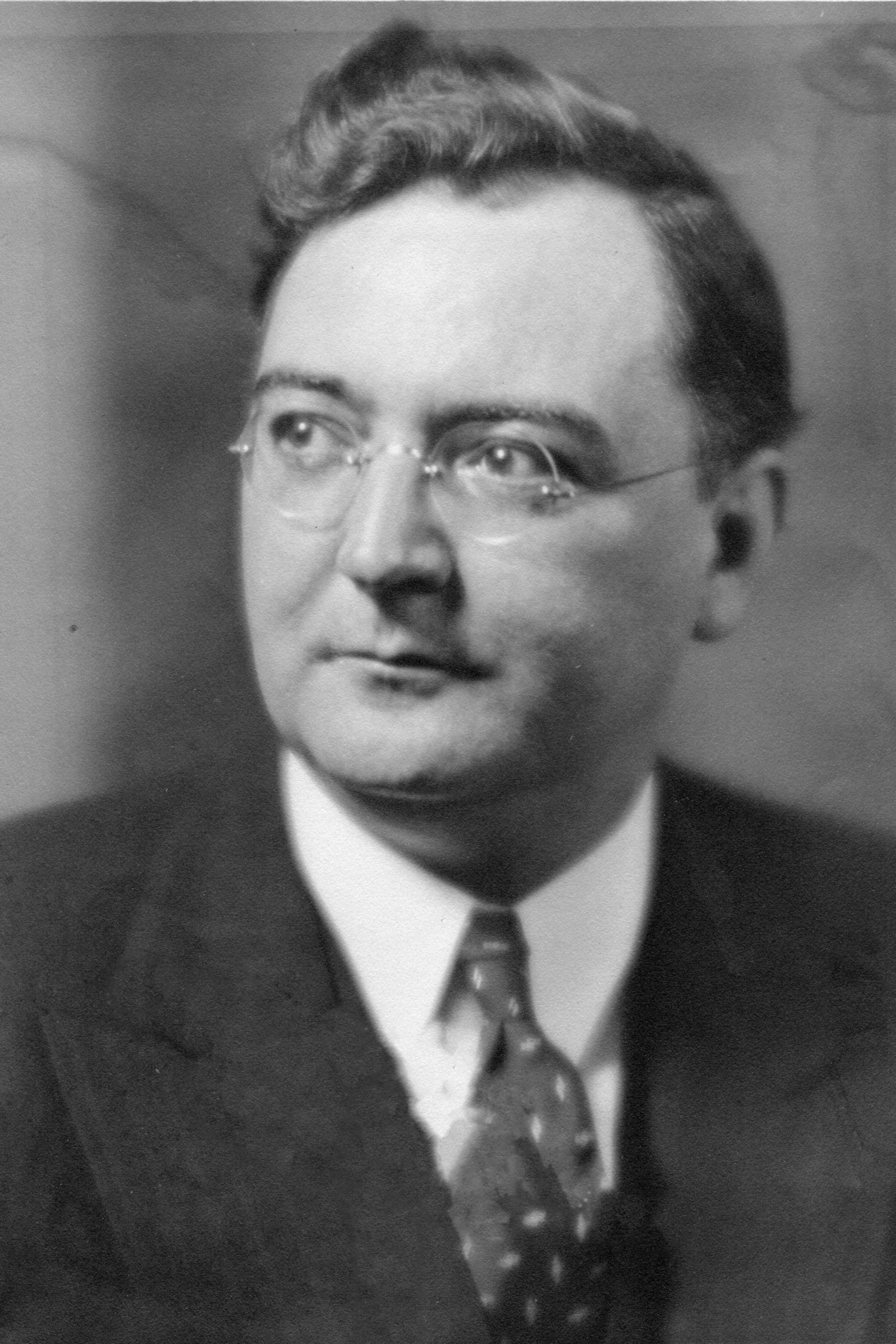
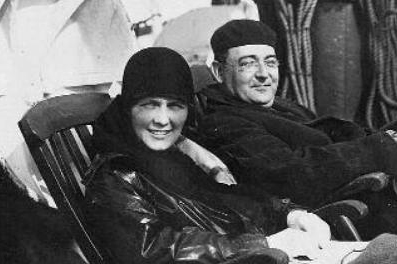

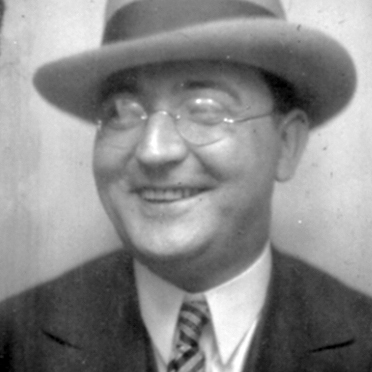
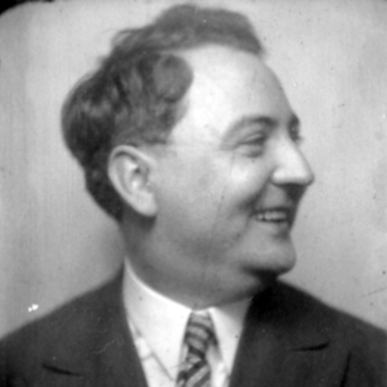
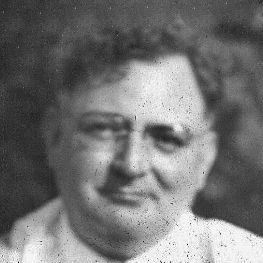
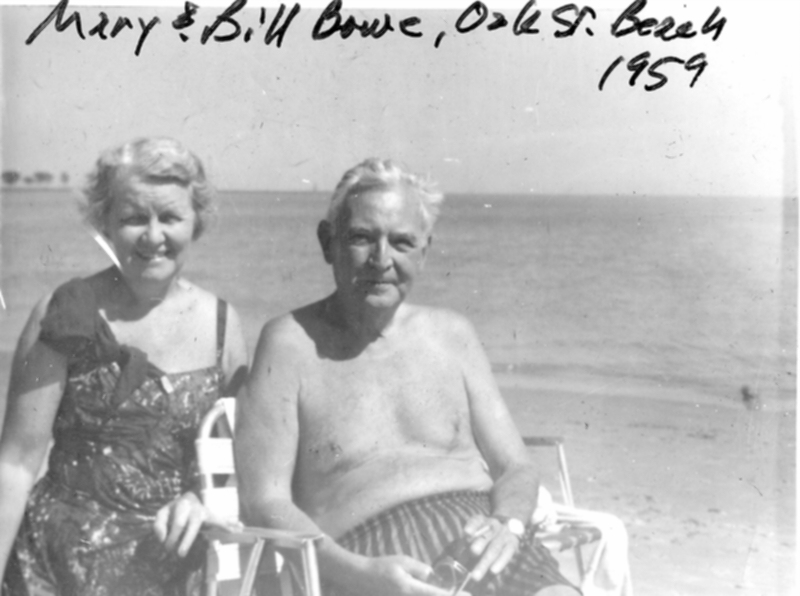
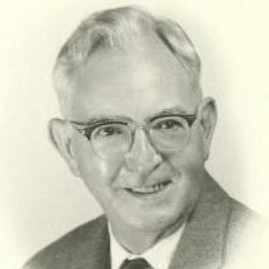
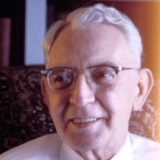
1970 William John Bowe, Sr. – His Early Life & Law Practice, Recalled in The Families
Early Life and Schooling
In The Families, Mary Gwinn Bowe wrote about her husband’s early life:
William John (Patrick) Bowe was born in Chicago at 1024 West Superior Street on Christmas Eve, December 24, 1893. He died December 30, 1965, at the age of seventy-two. I never heard him use or be called by his extra middle name Patrick. His mother was Ellen Frances Canavan. His father was John Joseph Bowe. He was a bright child, rather destructive, had all the infant diseases, loved animals and sports, and was well-liked and very sociable.
At four he went to kindergarten at the Alfred Tennyson School, fell immediately in love with the teacher and refused to stay unless she held his hand. He continued at the Fulton Street school until the sixth grade, when he went to St. Ignatius Academy at 12th Street and Roosevelt Road, where he remained until 1912. He made no particular scholastic history during this period and all honors in that line went to the scholarly Gus.
At eight he had a fearful bout with typhoid fever. A Sister Dismus nursed him and this illness affected his sight. He wore glasses from that time on.
In high school he was President of the Debating Society and was active in athletics. He finished in 1910. He also continued his college work at the same time he attended the Loyola University Law School. He received has law degree from Loyola in 1915. He passed the bar examination the same summer and became a lawyer at the age of twenty-one.
Helping His Mother Sell Life Insurance
When he was very small his sister Anna, the baby, was left in charge of the more reliable Gus, and Bill accompanied his mother Ellen as she sold insurance to other Irish families for the New York Life Insurance Company. She was very good at it. She took “Willie” with her on her evening calls, since most of her prospects worked all day. Bill said he used to listen to the conversations and hold his breath during those moments before the person signed up. Many of the fathers were in heavy or even dangerous work and their families frequently had occasion to collect on their insurance. So “Aunt Ella” did a great favor to many unfortunate families as she taught them the value of insurance from her own life experience. In this way she supported her own family during the years of her husband’s illnesses and until the boys began their law practice.
Learning to Earn His Way in the World: Selling Books
Bill’s first contact in doing business for himself was in selling Bible Symbols to newly arrived young Irish girls. This is how he recalled that and other early business endeavors:
The idea was, ‘The Foxes Have Their Holes; the Birds of the Air Their Nests, but the Son of God Hath Not Where to Lay His Head,’ with pictures between every two nouns. The purpose of the books was to acquaint children with the Bible when they could understand pictures, but couldn’t read. It was a handsome volume selling for $3, with $1.20 being the agent’s commission. I was pretty successful that summer and actually made $300. I think every purchaser got fair value because it was a beautiful book. I remember one domestic, just arrived from Ireland and unmarried. She was about twenty and difficult to sell as she was illiterate and was also unable to understand the pictures. But she did gather that it was a book for children. I was proud of selling her the book because I told her that instead of a hope chest of vanities and fineries, her first purchase for the chest was this great gift for her children.
A 12-Year-Old Office Boy Democrat Rises to Editor of a Republican Weekly
When I was 12 or so, I answered an ad for an office boy. The salary was $3 a week. Seventy-five boys were lined up before the office opened at 127 North Dearborn Street, across from City Hall. This was also the same building the Bowe & Bowe law offices were later in. Mr. O’Grady, publisher of the Chicago Weekly Republican, quickly selected me for the job since I was pretty tall and wore glasses. The office consisted of a reception room and two small private rooms. Into the reception room he had crowded five desks which he rented to friends for $10 a month with the privilege of putting their names on the door if they paid for the gold leaf.
O’Grady got out his rewrite sheet only at election times. He was mostly busy soliciting ads and shakedowns from the Republican candidates. So the job of editor was soon handed over to me. He was the business manager, getting from $10 to $25 for promoting or not disparaging the candidates of the day.
I told him that I was a Democrat and, although not old enough to vote, I was entirely in sympathy with William Jennings Bryan who was running against William Howard Taft. I told him that I felt that I could not honestly edit a Republican paper. O’Grady said, ‘Will, what the hell do you think I am!’ So it was that he proceeded to instruct me in the duties of being an editor.
At that time Chicago had seven newspapers, all of them subscribed to by O’Grady. My job was to cut out anything bad about the Democrats and paste it on the format. Depending on how many ads or contributions he got, he would order them pasted in accordingly. Candidates who had their pictures printed would naturally subscribe for fifty or more copies for their constituents. In my time as the editor of this sheet, I tended to become more strongly Democratic.
O’Grady’s desks were rented out to a retired army officer who was working on a system of defense tactics far in advance of the atomic age, an alderman, and three others. Various people also had it as a mailing address.
The rent for the entire suite was $35 a month. Our publisher collected $50 from the lot and was sensible enough to have a pay telephone. O’Grady was about fifty when I knew him and had made many friends along the way. Some presumed upon his kindness and generosity to the extent that two dear old buddies slept on the floor when they were temporarily embarrassed, which was always. One was an old gambler with consistently bad luck. From him came my introduction to bookmakers. As an “editor,” I thought at first that bookmakers were publishers. He would put $2 in an envelope and have me take it to his bookmaker. This turned out to be the colored doorman at the Republic Theatre, who took care of all such printing.
That summer was very hot and it was before Grant Park was beautified. A wooden bridge spanned the Illinois Central tracks and led to the lake at Randolph Street. At night this charming old horseman would cross the bridge and walk a block or so to the water. There he had the whole lake to himself and, with no need for a suit, he would cool off his 275 pounds in Lake Michigan. Then he would return to sleep on the sofa at 127 South Dearborn.
Of all my friends of this period I loved the Kentucky gambler best, for his cleanliness, if not for his Godliness. More than once he retired to the closet while I took his brown suit out to be pressed. He and O’Grady finally had a fight and, in all heartlessness, O’Grady told this dear soul to get the hell out. Although election was coming near, on the departure of my friend I lost all interest in supporting William Howard Taft and I retired. O’Grady’s parting words to me were, “Never trust a Republican, especially one who’s a Democrat.” I finished the rest of the summer working on one of my uncle’s farms.
Summers on a Canavan Farm
In all I worked on the farm two summers as a boy without pay and two summers for pay. The first summer that I was paid, I received 50 cents a day and board. The next summer, nothing being said about a raise, I assumed it was more. On being told at the end of the season that there was no increase in salary, my indignation was so great that when Tennes Marcotte drove me six miles into town to take the train to Chicago and handed me $9 in silver for three weeks work, six days a week, I demanded more. The train was pulling in when he said, “Well, Bill, I’ll write you about that. You’ll miss the train.” I said, “We’ll settle it now. Seventy-five cents is my price.” He said $9 was all the money he had with him. I said he could get it in town and I’d wait for the next train. He pulled out the balance at once and I got aboard.
However, thinking back, I’ve always regretted my demands, remembering how much I ate, how tall I grew and how much I enjoyed that pleasant life that children today can only guess at.
The Mission Art Company
I had been selling one thing or another from the time I was ten. The next thing was the partnership Gus and I had in the Mission Art Company. It had offices in Chicago and a mythical one in St. Louis to make it appear to be a vast company. The main business for Gus and me was the sale of luminous crucifixes through door-to-door salesmanship. We had them made by a Mexican.
I copied the John A. Hertle system of selling by engaging high school and college students as agents during the summer. I copied their useful contract, substituting our Mission Art Company name and guaranteeing $16 a month. We also put ads in the employment columns of the Daily News guaranteeing $60 a month (the company agreeing to make up the deficit if the commissions did not amount to that sum). A born salesman and a genius could perhaps have made that much. Those who after a day or two found it not a congenial employment never stayed long enough to collect their guarantee so the Mission Art Company stayed solvent. And a $50 balance in the checking account was never completely exhausted.
I also followed the Hertle idea of recruiting at various schools, St. Ignatius College, Notre Dame University, wherever students were looking for summer jobs. And many of them were really successful and I’m sure they look back on those experiences as giving them valuable training in meeting the public and learning salesmanship.
Teams were sent to various places. For several days I would stay and work with each showing how easy it was to sell the luminous crucifix. A crew of seven was established in the very Irish and Catholic city of Joliet. We rented a large sample room in a small centrally located hotel. The rent was a $1.50 a day, but for an extra 50 cents they put in seven cots, making it all quite reasonable.
We were all young men with voracious appetites and we solved the eating problem in the first couple of days in a Chinese Restaurant next door that had amazingly generous portions of Chop Suey, together with tea. It was all you could eat for 25 cents. The first several days we had Chop Suey for breakfast, lunch and dinner. My college boys were all attractive, as college boys always are, and they used the sales talk in which I had trained them, that they were “working their way through college.” Based on the Catholic parishes Christmas contributor’s list, I sent them only to selected sections of the city where the price of a $1.50 would not be considered prohibitive.
It was not long, perhaps four days, before each young man had made social contacts through which all of the crew were invited to homes of affluence, often including not only dancing in the converted attic ballrooms, but sumptuous suppers. When the seven of us stormed in we met with some resentment from the local boys, but women are fickle and the Chicago college team was momentarily more attractive than the natives. When my friends were comfortably established among the Four Hundred and could count on ham and potato salad as well as dancing, I myself moved on to another city.
Next I took a number of students down to Belvidere. In Peoria I appointed a resident representative. At the end of the summer I returned to school, but we realized that in a volume business it was impractical to rely on summer students. So Gus and I went into the manufacturing end.
In those days people hung portraits of their relatives in the living room. There was a company that made portraits from small pictures and although it was on the wane, they had a fine sales organization in Chicago with a great many agents.
Now we sold wholesale. We got a small picture frame factory and a portrait enlargement concern wiring to take on our line: luminous crucifixes, statuary and religious pictures from which the Sacred Heart of Jesus would send out inspiring rays during the night — “To The Cross I Cling.” We even had a couple of connections in South America. Finally and sadly, in a large order for Mexico, all the statues of the Sacred Heart stuck together due to the tropical heat. This put us out of business and closed my commercial career. I was 19.
Early Lawyering with Gus
Gus passed the Bar examination in 1913 at the age of 21 after a distinguished career as a student, having received his college A.B. degree at the age of 18. His notice that he had passed the Bar came in July. The Supreme Court had an October term so, as a businessman, I saw a great financial loss between July and October when the Court would sign the license to practice. I had great faith in Gus and felt that he should be able to start his practice immediately and not deprive people who needed him of his services. I felt it was incumbent upon me to get him some clients.
A few days later, about the end of that July, I read in the paper that a sudden windstorm had caused injuries to some patrons of the Gentry Brothers Circus then showing on the South Side. Names and addresses of a dozen or so were given. None were seriously injured unfortunately. But the lights had gone out, panic had developed, and some had incurred rope burns. Others had sprained their ankles. I quickly called on all of the victims whose names were published. They were much cheered by my interest in their misfortune. I was much depressed that it was not more serious.
I gathered up seven or eight Powers of Attorney, appointing Augustine J. Bowe their lawyer to collect damages for the catastrophe. An attorney’s lien law recently passed by the Illinois Legislature provided that the attorney’s interest in the outcome of the claim would be one third of the proceeds. I served such liens on Mr. Gentry. He at once offered me settlements, ranging from $50 to $75 in each case. We had later friendly dealings with him and on one occasion were offered a baby elephant as part of a settlement.
After the Gentry affair, Mr. Schultz came along. He was a passenger on a streetcar which collided with a horse-drawn truck. Unfortunately for me, he too was not seriously injured. The streetcar company refused to settle, holding that the horses of the Dunn Coal Company became unmanageable and jumped in front of the street car . We sued them.
It was the first case Gus ever tried in court. A non-jury case, it was tried before Judge LaBuy, a brother of Judge Walter LaBuy. He assessed damages of $350 and we got our first fee of over $100.00.
Sometime later I was alerted to the death of a seven-year-old boy whose mother was a widow living near the Stock Yards. Somehow this little fellow got down to 24th and Dearborn. In an alley behind the old Standard Club, at that time at 24th and Michigan, a Consumers’ Ice truck delivering ice to the Club, backed up and killed him. The mother with her two other children was receiving $2 a week from the United Charities.
So I told Mrs. Greaves, as one Irishman to another, that I would gladly represent her. I mentioned my cousin, Dr. Thomas Hughes, who had practiced in her neighborhood for 40 years. She knew him well since he had delivered her three babies without charge. She felt sure he would want me to look after her interests.
At that time the courts of Cook County were so far behind that it took three years for a case to reach trial. We learned that the Consumers operated also in Lake County. So we at once filed suit in Waukegan, the county seat, and got service on one of the trucks there. In three months the case came to trial with a verdict returned of $5,000. At the time, that was double any judgment ever returned for the death of a child of that age. My old friend, Ernie Stout, made a two column story for the Chicago Evening Post, “Chicago Lawyer Finds Way to Defeat Law’s Delay.” That publicity paid off later in many other cases.
In World War I Bill Loses Part of a Foot in a Troop Train Accident in France
The war interrupted and Bill enlisted and went off. Gus was left to take care of mother, sister and the law practice. Then Bill was injured in a train accident in France early in his military service.
The masthead of The Chicago Citizen on Friday, June 28, 1918 read, “The Only Irish National Secular Newspaper West of New York — Devoted to the Unity and the Elevation of the Irish People.” The headline read, “Chicago Man Injured at Front — Well Known Chicago Attorney Whose Bravery Sheds Luster on the Irish Race.” And the article took it from there:
“Sergeant William J. Bowe, who was injured in France in a railroad accident, but now on the road to recovery, is at present in the American hospital in Blois. Mr. Bowe was a Chicago attorney, a member of the firm of Bowe & Bowe, 127 North Dearborn Street, a member of the Knights of Columbus, the Chicago Bar Association, the A.O.H. Irish Fellowship Club, and Treasurer of the Loyola University Alumni Association. He was associated for several years in the practice of the law with his brother, Augustine J. Bowe, who is now carrying on the business of the firm. Their practice in personal injury and workmen’s compensation claims is very wide. Mr. Bowe is of Irish descent. His people hail from County Carlow.”
1918 saw Bill’s return with half a foot after a year in French hospitals. He was the first American to be cared for in Orleans and Blois. He never got over his love for the French because of their devotion and friendship during that year. In the days before antibiotics, he refused to permit the amputation of his leg and claimed that its healing could be attributed to “Dakin’s Solution.”
His third and last hospital at Savanay he found less endearing, but he was on his way home then, as it turned out. Then he was sent to Camp Dodge in Iowa, from which he was able to visit the Iowa cousins, the Harts and the McNulty s.
In spite of his lack of knowledge of the language of France, he returned annually and was always happily at home there. Indeed, France became the vacation objective of the whole family.
The Workmen’s Compensation Practice in Illinois
The Illinois Industrial Commission had been set up as early as 1913. It’s purpose was to handle cases involving hazardous employment. In 1911, Dr. Alice Hamilton had made a study of the white lead industry in the United States. The publication of her findings hastened legislation to improve working conditions not only among lead workers everywhere, but also to alleviate the abominable dangers in the coal mines of Southern Illinois and the East. This field of law was new and it proved a profitable one as the number of Workmen’s Compensation cases increased in Illinois and around the country.
By this time Bill had made many good friends at the Commission, now in the State of Illinois Building, and he took care of the personal injury and occupational disease cases such as silicosis and asbestosis before the Commission. Gus tried the jury cases in the Illinois civil courts. Captain Albert V. Becker was Chairman of the Industrial Commission for many years. He and Bill had served in the same unit in the National Guard, of which General Abel Davis was Commander.



